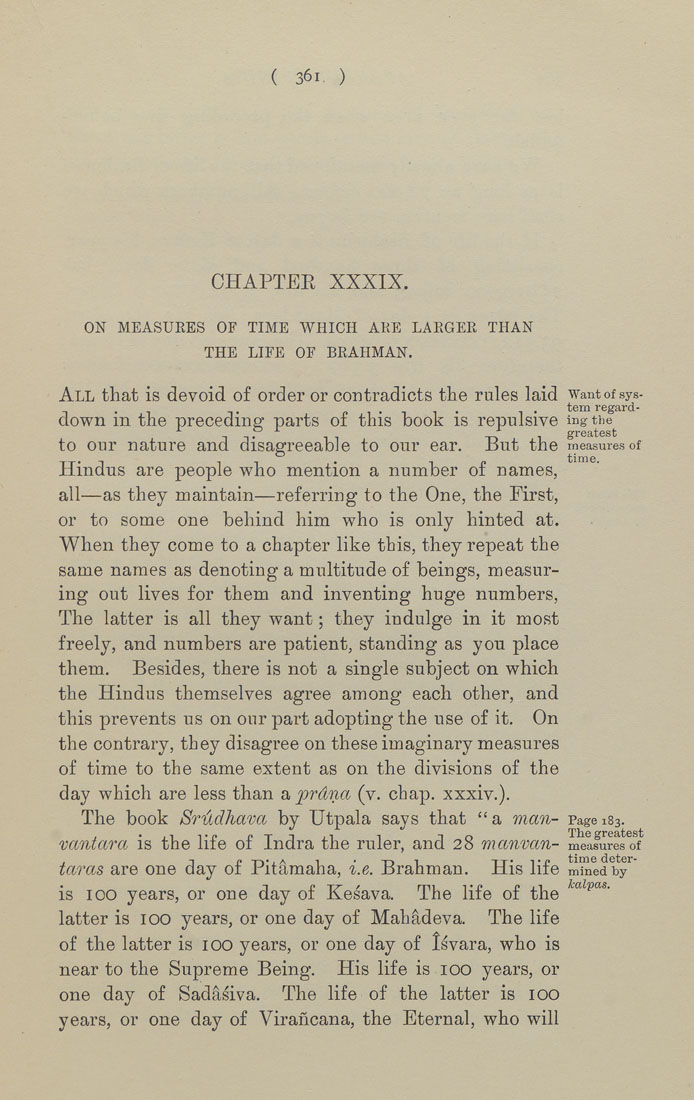Bīrūnī, Muḥammad ibn Aḥmad, Alberuni's India (v. 1)
(London : Kegan Paul, Trench, Trübner & Co., 1910.)
|
||
|
|
|
|
| Page 361 |

( 36i, ) CHAPTEE XXXIX. ON MEASUEES OF TIME WHICH ARE LAEGEE THAN THE LIFE OF BEAHMAN, All that is devoid of order or contradicts the rules laid wantof sys- ., ,. p T • T ^ • T • ^®™ regard- down in the preceding' parts of this book is repulsive ingthe -IT -T. 1 greatest to our nature and disasrreeable to our ear. But the measures of time. Hindus are people who mention a number of names, all—as they maintain—referring to the One, the First, or to some one behind him who is only hinted at. When they come to a chapter like this, they repeat the same names as denoting a multitude of beings, measur¬ ing out lives for them and inventing huge numbers, The latter is all they want; they indulge in it most freely, and numbers are patient, standing as you place them. Besides, there is not a single subject on which the Hindus themselves agree among each other, and this prevents us on our part adopting the use of it. On the contrary, they disagree on these imaginary measures of time to the same extent as on the divisions of the day which are less than a prdna (v. chap, xxxiv.). The book Srildhava by Utpala says that "a man- Page 183. vantara is the life of Indra the ruler, and 28 manvan- measures of taras are one day of Pitamaha, i.e. Brahman. His life mhiedby is TOO years, or one day of Kesava. The life of the '*^''*' latter is 100 years, or one day of Mahadeva. The life of the latter is 100 years, or one day of Isvara, who is near to the Supreme Being. His life is 100 years, or one day of Sadasiva. The life of the latter is 100 years, or one day of Virancana, the Eternal, who will |
| Page 361 |







